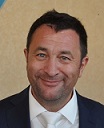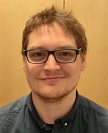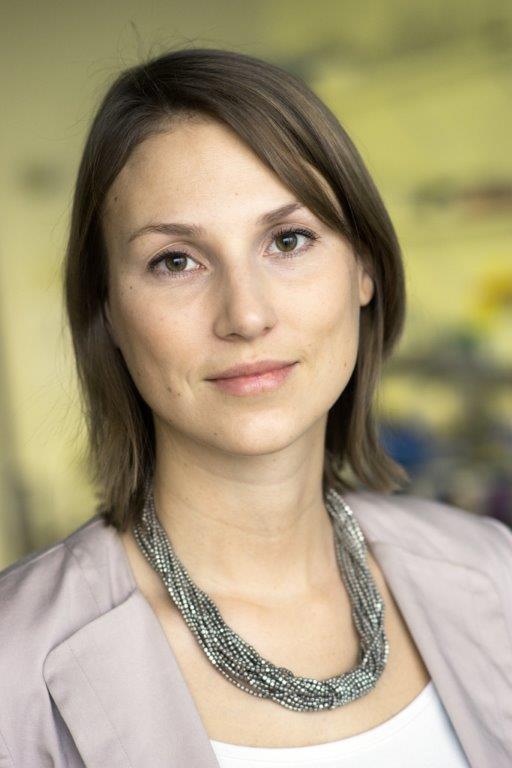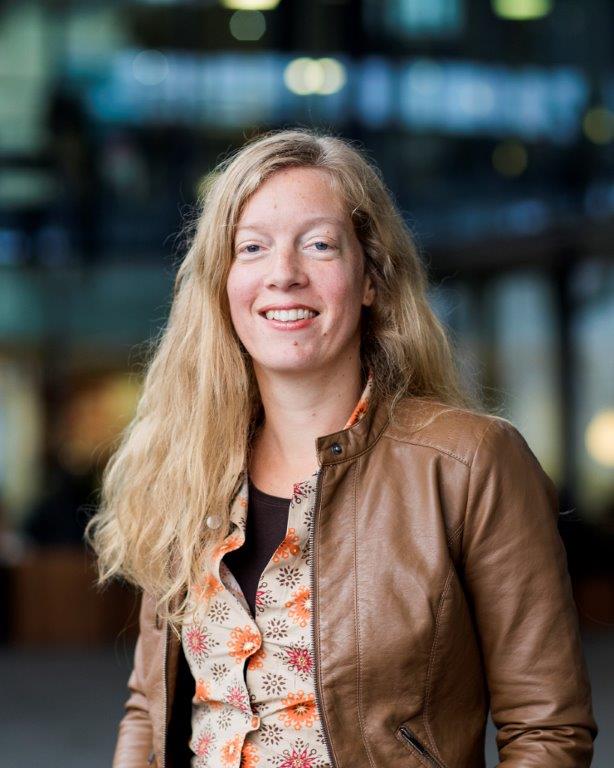
|
|
|
Keynote speakers
To be updated
Franck Artzner, University of Rennes, France Franck Artzner is a CNRS research director at the Physical Institute of Rennes (France). He heads the Joint Laboratory Archi-Pex with IPSEN, which investigates commercial formulation of self-assembled peptides. He was chairperson of the Bio-inspired Nanotechnologies group at OMNT. He is involved in the review committees of synchrotrons. He recently received the Delalande prize from the French Pharmaceutical academy. He is interesting in mimicking natural self-assemblies to create new materials. His group has a strong expertise in technical development as well as crystallographic characterization of structures by unconventional X-ray scattering techniques, SAXS, Fiber Diffraction...
André Gröschel, Physical Chemistry and Centre for Nanointegration, University of Duisburg-Essen, Germany André Gröschel studied chemistry at the University of Bayreuth and graduated in 2012 in Chemistry working with Axel H. E. Müller on block copolymer synthesis and hierarchical self-assembly of multicompartment nanostructures. From 01/2013-12/2015 he joined the group of Olli Ikkala at Department of Applied Physics of the Aalto University School of Science in Helsinki (Finland) pursuing his postdoc on biomimetic nanocomposites and photonic materials. In 01/2016, he received an endowed Evonik-Professorship and moved to the University of Duisburg-Essen (Germany), where he is now group leader in the Department of Physical Chemistry. In 2017, he was awarded an Emmy Noether Independent Research Group from the German Research Foundation. The group currently consist of 9 graduate students located at the Nano Energy Technic Center in Duisburg. He has published over 30 papers and 2 book chapters. He is member of the German Chemical Society, the German Colloid Society and the Centre for Nanointegration, and is currently Guest Editor of a Special Issue of Polymer. His research interests comprise block copolymer synthesis, self-assembly, electron tomography, liquid cell TEM, block copolymer microparticles, mesoporous carbon, inverse micelles, photonics and energy conversion.
Daniela Kraft, Institute of Physics, Leiden University, The Netherlands Daniela Kraft is an Associate Professor in Soft Matter Physics at the Huygens-Kamerlingh Onnes Laboratory at Leiden University, The Netherlands. She obtained her Ph.D. from the University of Utrecht, The Netherlands, before joining the Center for Soft Matter Research at New York University, USA, as a postdoctoral researcher. In 2013, she moved to Leiden, where she established her own group. Her research focuses on self-assembly in soft matter and biological systems, such as anisotropic colloidal particles, lipid vesicles, emulsions, and viruses. Dr. Kraft has been awarded a Rubicon and a VENI fellowship from the Netherlands Organisation for Scientific Research and an ERC starting grant. More information
Marcus Müller, Institut für Theoretische Physik, Georg-August-Universität, Germany Marcus Müller received his Ph.D. in theoretical physics in 1995 from the Johannes Gutenberg-Universität in Mainz, Germany working with Kurt Binder on structure and thermodynamics of polymer blends. After a TRACS visit at the EPCC Edinburgh, working with Mike Cates on ring polymers, he went as a Feodor Lynen fellow to the University of Washington, where he worked with Michael Schick on homopolymer/copolymer mixtures and, recently, fusion of model bilayer membranes. He returned back to Mainz and obtained his Habilitation in theoretical physics in 1999. Before joining the ITP in Göttingen, he was an associate professor in the department of physics at the University of Wisconsin-Madison, a Hochschuldozent at the University of Mainz, and a Heisenberg fellow of the German Science Foundation (DFG). He did research at the IFF, Jülich, Germany and the INIFTA and CNEA, Argentina. The APS awarded him the 2004 John H. Dillon Medal. In the same year he received a Lichtenberg professorship from the Volkswagen foundation to study biophysical models for collective phenomena in membranes. His research interests focus on computational soft matter, in particular the phase behavior and interface properties in polymer blends, solutions and amphiphilic systems. Quantitatively comparing computer simulations and numerical self-consistent field calculations, he investigates wetting and phase behavior in thin films, self-assembly of copolymers and binary brushes, the kinetics of phase separation, and coarse-grained models for membranes. More information
Ilja Voets, Eindhoven University of Technology, The Netherlands In 2004 Ilja Voets obtained her MSc degree in molecular sciences from Wageningen University and started her PhD research on the electrostatically driven co-assembly of double hydrophilic block copolymers in aqueous solution (cum laude, 2008) in the Laboratory of physical chemistry and colloid science under the supervision of Dr Arie de Keizer and Prof. Martien A. Cohen Stuart. She moved to Switzerland in 2008 for her postdoctoral research at the Aldolphe Merkle Institute, University of Fribourg in the group of Prof. Peter Schurtenberger on the phase behaviour of concentrated protein mixtures. In 2011, she became assistant professor at Eindhoven University of Technology (TU/e), then associate professor and now full professor. Her research focuses on the physical chemistry of self-assembly processes in soft matter to gain fundamental insights to be translated ultimately into rational design strategies for novel functional nanostructured materials. She is interested in colloidal self-organization, polymer assembly and folding, and protein biophysics. She studies how to control intra- and intermolecular copolymer assembly to reveal key structure-property relations, to package fragile biomolecules, to develop artificial enzymes, to enhance colloidal stability and to tailor smart materials. She's fascinated by ice-binding proteins, in short IBPs, that help fish, insects, and plants survive in extreme environments at subzero temperatures. Another key research challenge is to orchestrate colloidal self-assembly with remote cues such as light and temperature. More information
|






